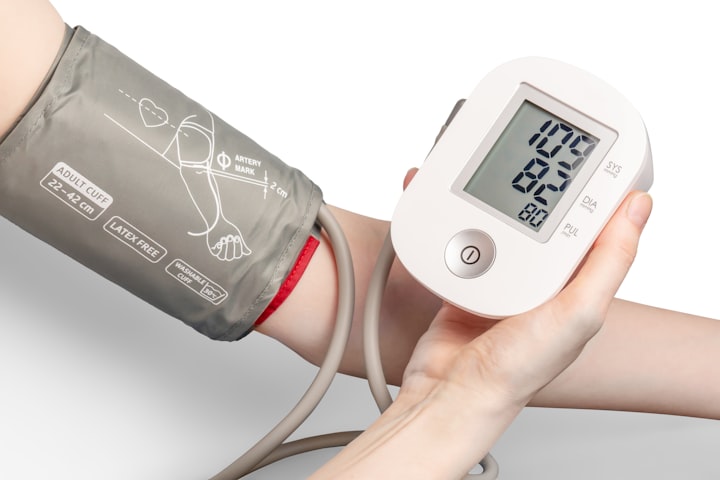
High blood pressure is a serious condition that can cause long-term damage to your health if left unchecked. But the good news is that there are a number of natural ways to help you control your blood pressure and avoid any potential health risks. In this blog post, we’ll look at the best methods for fixing high blood pressure the natural way. From lifestyle changes to dietary adjustments and supplements, we’ll explore the different options available and how you can use them to your advantage. So, let’s take a look at the best ways to fix high blood pressure the natural way.
Get more magnesium
Magnesium is an essential mineral that helps to regulate your blood pressure, and getting enough of it can help fix high blood pressure. There are many foods that contain magnesium, including dark leafy greens, nuts, seeds, and whole grains. Additionally, you can take a supplement of 300-400 mg per day to help increase your magnesium levels. If you choose to take a supplement, be sure to talk to your doctor about the best dosage for you.
Cut back on salt
Salt is an essential part of our diet, but it can also be the cause of high blood pressure. Eating too much salt can cause your body to retain fluid, which increases the volume of blood flowing through your arteries and increases your blood pressure.
The recommended amount of salt for adults is 6 grams per day (2.4 grams of sodium). To reduce your salt intake:
- Avoid processed and packaged foods such as ready-meals, salted snacks and canned soups.
- When cooking, use herbs, spices and lemon juice to season your food instead of relying on salt.
- Choose low-salt alternatives when buying canned and packaged goods.
- Read food labels carefully, especially for condiments such as soy sauce and ketchup, which are often high in salt.
- If you eat out, ask for your meal to be cooked without added salt.
Making small changes to your diet can make a big difference in helping to reduce your blood pressure and improve your overall health. Reducing your salt intake is an important step in the right direction.
Drink more water and less alcohol
Drinking plenty of water is essential for overall health and it can help regulate your blood pressure. Aim to drink at least eight 8-ounce glasses of water per day. It's also important to limit your alcohol intake. Alcohol can raise your blood pressure, so limit yourself to one drink a day if you're a woman, or two drinks a day if you're a man. Avoid binge drinking and excessive alcohol consumption, as this can cause a spike in your blood pressure.
Limit your caffeine intake
Caffeine is a stimulant found in coffee, tea, energy drinks, and other foods and beverages. It can temporarily raise your blood pressure by stimulating your heart to beat faster and work harder. Over time, too much caffeine can lead to high blood pressure, heart palpitations, anxiety, insomnia, and other health issues.
To help lower your blood pressure and reduce the risk of cardiovascular disease, it's important to limit your intake of caffeine. The American Heart Association recommends no more than two 8-ounce cups of coffee per day. Other sources of caffeine, such as tea and energy drinks, should be limited to about one to two servings per day.
Drinking too much caffeine can cause serious health problems, so it's important to keep your consumption within recommended levels. Cutting back on caffeine may also help you sleep better at night and reduce your stress levels, both of which are important factors in maintaining healthy blood pressure levels.
Reduce stress
Stress can be a major contributing factor to high blood pressure. That's why it's important to take steps to reduce your stress levels. Start by taking time out of each day to relax, breathe deeply, and meditate.
If you're feeling overwhelmed, try talking to a friend or family member, or seeing a therapist. You can also try activities like yoga, Tai Chi, and Qi Gong to help relax and manage your stress levels.
Practicing mindfulness and gratitude can also be helpful in reducing stress and anxiety. Finally, find healthy ways to cope with difficult emotions like anger and fear, such as using cognitive behavioral therapy or other therapeutic approaches.
Eat more potassium-rich foods
Eating more potassium-rich foods is one of the best ways to naturally lower your blood pressure. Potassium helps to reduce sodium levels in the body, which in turn can help to regulate your blood pressure. Foods that are high in potassium include bananas, sweet potatoes, spinach, beans, tomatoes, oranges, salmon, and yogurt.
When adding potassium-rich foods to your diet, be sure to monitor your intake closely as too much potassium can be harmful. If you have kidney disease or are on medication, consult with your doctor before increasing your potassium intake.
In addition to eating more potassium-rich foods, it's important to also limit processed and fried foods, which can contain high amounts of sodium and unhealthy fats. Eating more fresh fruits and vegetables is a great way to get your daily dose of potassium.
By including potassium-rich foods in your diet and limiting processed and fried foods, you can naturally reduce your blood pressure over time.
Quit smoking
Smoking is a major risk factor for high blood pressure and other cardiovascular diseases, and it can significantly raise your blood pressure. Quitting smoking is one of the best ways to lower your blood pressure and reduce your risk of developing health problems related to hypertension.
If you’re a smoker, quitting is easier said than done, but there are many resources available to help you quit. You can talk to your doctor about nicotine replacement therapy and prescription medications that may help you kick the habit. You can also join a smoking cessation program or support group.
In addition to quitting smoking, it’s important to avoid secondhand smoke. It’s just as bad for your health as smoking yourself. You should also avoid areas where people are smoking, such as bars and restaurants, in order to protect yourself from secondhand smoke.
Quitting smoking is one of the best things you can do for your heart health and for lowering your blood pressure. With the right resources and support, you can quit and start living a healthier lifestyle today.
Exercise regularly
Regular exercise can be a great way to lower your blood pressure. Aim for 30 minutes of aerobic exercise, like walking, jogging, biking or swimming at least five days per week. Not only can regular exercise help keep your blood pressure in check, it can also help reduce stress and improve overall health.
Before beginning any exercise program, it's important to talk to your doctor. People with high blood pressure need to be especially careful and should start slowly, with low-intensity activities like walking. Be sure to warm up before each workout and cool down afterwards. Listen to your body and stop if you experience dizziness, chest pain, or other signs of discomfort.
In addition to aerobic activity, strength training is also important. Aim for two days of strength training each week, using light weights or resistance bands. Strength training helps build muscle, which can improve your metabolism and help reduce your risk of high blood pressure.
Finally, don't forget to stretch. Stretching helps improve flexibility, range of motion and balance. All of these are important when it comes to reducing your risk of high blood pressure.
Lose weight if you're overweight or obese
If you're overweight or obese, losing even a small amount of weight can have a big impact on your blood pressure. Even a modest 5-10% reduction in your body weight can help to lower your blood pressure significantly.
The best way to lose weight is through diet and exercise. Eating a healthy diet that is low in fat, salt, and sugar and high in fresh fruits and vegetables will help you lose weight in a safe and effective way. Exercising regularly—aim for 30 minutes a day, five days a week—will help burn off excess calories and help your body maintain a healthy weight.
Your doctor can recommend an appropriate weight loss program for you, or you can consider consulting with a dietitian or nutritionist who can help you create a meal plan that works for you. Additionally, joining an online support group or attending an in-person weight loss class can provide you with the motivation and support you need to stay on track with your weight loss goals.
Ultimately, having a healthy lifestyle is the best way to ensure that your blood pressure remains in check. Regular exercise, maintaining a healthy weight, eating nutritious meals, avoiding smoking and alcohol, and managing stress are all key components of keeping your blood pressure in check. So don’t hesitate—take action today to reduce your risk of high blood pressure and improve your overall health!
Monitor your blood pressure at home
Monitoring your blood pressure at home is an important part of managing high blood pressure. A home blood pressure monitor can help you keep track of your blood pressure levels and alert you to any potential problems.
It's important to have an accurate home monitor, as readings can vary depending on the model and quality. The American Heart Association recommends using a home blood pressure monitor with an upper arm cuff and a digital display. Manual monitors with a stethoscope and a gauge are not as accurate.
To get the most accurate readings, measure your blood pressure at the same time each day, preferably in the morning before eating or drinking anything. You should also avoid smoking, exercising, or taking medications for at least 30 minutes before taking a measurement. When measuring your blood pressure, make sure your arm is at heart level and supported, and that the cuff is properly placed over bare skin.
You should take two or three readings and record the results in a log. If your readings are consistently higher than normal, it may be a sign that your blood pressure is too high and you should contact your doctor.
if you want to know another way, click here.
About the Creator
Saul
Hello there i hope your doing okay. i'm just a regular guy looking for some info
and i heard this is the best place to find the best info. i'll also like to provide information of what i know (;






Comments
There are no comments for this story
Be the first to respond and start the conversation.